For many of us, an alcohol or drug addiction can be a vicious cycle.
It’s rare to meet a person struggling with an alcohol or drug addiction who wants to continue on the path they’re on. Most have grown weary of never being able to get off the path of destruction and despair.
Most have lost jobs, lifestyles, family and friends.
Most have lost a true love. Most have lost themselves.
Most are searching high and low for the right addiction treatment program that is going to finally allow them to choose something different than this dead-end path.
Most want to find a way to end their never-ending circle of substance abuse once and for all.

Key Takeaways
- For many people, finding the right inpatient treatment center can be an enormous challenge and prevent their ability to recover from drug and alcohol addiction for ever happening.
- Though there are thousands of alcohol and drug treatment centers in the United States, the number of people struggling with a substance abuse disorder continues to climb.
- Knowing the right things to look for and the right questions to ask can make an enormous difference in your long-term recovery success rate.
Though there are currently over 15,000 alcohol and drug treatment centers in the United States, many seem to miss the mark when it comes to long-term addiction treatment recovery.
They may be able to get patients sober and free of substance abuse for a period of time, but the current success rate for long-term addiction treatment recovery is – sadly – quite low.
Why is this? How can there be so many substance abuse treatment centers across our country, but still so many individuals struggling with a drug or alcohol addiction?
While alcohol and drug rehab treatment centers offer a comprehensive approach to breaking the substance abuse cycle, providing individuals with the tools and support they need to overcome addiction and regain control of their lives can be more of a challenge than just calling a facility a drug and alcohol treatment center.
With so many different types of alcohol and drug rehab programs available, it can be overwhelming to know where to start, what to look for and what type of questions to ask.
If you are ready to finally beat your drug and alcohol addiction, you can break the cycle. Knowing exactly what alcohol or drug rehab is and what a program needs to meet your needs is going to be a huge step forward in finally finding the solution you’ve been spending a long time looking for.
Do both you and your partner want to get through addiction together? There are also options for couples rehab.
The Rise of Rehab: How Did it All Begin?
The concept of inpatient drug and alcohol rehab is not a new one.
In fact, the origins of alcohol and drug treatment centers can be traced back to the mid-19th century, during which time the first inpatient facilities for the treatment of alcoholism were established in the United States.
These facilities were known as inebriate asylums, and they were often run by religious organizations or temperance groups.
The goal of these facilities was to provide a safe and structured environment for those who were struggling with alcoholism and help them to receive the treatment and support they needed.
In the early 20th century, the focus of addiction treatment shifted from alcohol abuse to drug addiction. This change was largely due to the rising popularity of drugs like cocaine and morphine.

Now, most medical professionals and substance abuse specialists believe that the ways in which our bodies deal with addiction to drugs and/or alcohol can be treated in similar ways with similar tactics. Most treatment centers are now equipped to be alcohol rehab and drug rehab facilities with expert staff and techniques to treat both.
Over time, the field of addiction treatment has continued to evolve, with new approaches and techniques being developed to better address the complex nature of addiction.
Today, drug and alcohol inpatient treatment is widely recognized as one of the most effective ways to treat addiction and help individuals break free from the cycle of substance abuse.
What are the Benefits of Inpatient Alcohol and Drug Addiction Treatment?
When it comes to drug and alcohol addiction treatment, there are two main options available: inpatient rehab and outpatient rehab.
Inpatient rehab involves living at a residential facility for a period of time, typically between 30 to 90 days, while receiving intensive treatment for addiction.

Outpatient rehab, on the other hand, allows the individual to continue living at home while attending different types of individual and group therapy and treatment sessions on a regular basis.
While both options have their benefits, inpatient rehab can offer some distinct advantages over outpatient rehab for many people who are struggling with alcohol and/or drug addiction.
To begin with, inpatient rehab provides a more structured and supportive environment, with 24-hour access to medical care and emotional support.
This can be particularly beneficial for individuals who struggle with a severe substance abuse addiction or need dual diagnosis treatment, particularly if there are mental health disorders at play as well.
Additionally, inpatient rehab removes individuals from their home environment, which can very often be a main source of triggers for many who struggle with substance abuse issues and the type of stress that can greatly hinder someone’s recovery.
Patients who decide to take the plunge and commit to residential inpatient treatment have access to a variety of therapy modalities, including individual counseling, group therapy, and holistic therapies like yoga and meditation.
This can provide a more comprehensive and well-rounded treatment approach that addresses not only the physical addiction that a substance use disorder causes, but also to the underlying emotional and psychological factors that contribute to someone developing substance abuse issues.
Overall, inpatient rehab offers a higher level of care and support than even an intensive outpatient program can, which is a great benefit for individuals who need a heightened and more concentrated treatment for addiction.
While outpatient rehab can be effective for mild to moderate addiction or for individuals who have already completed inpatient rehab, inpatient rehab is often the best choice for an individual to heavily consider who requires a more structured and immersive treatment experience to finally find the peace from their substance use disorder that they have been craving.
Inpatient Addiction Treatment: What Should I Expect?
Entering into an inpatient rehab facility can be an overwhelming experience for anyone, but especially for a person who has never gone before, and is unsure of what they should expect.
Having some idea of the process will greatly alleviate some of your fears and anxiety and will help the entire experience get off to a positive and successful start.
Not only that, but once you have some understanding of how an inpatient treatment center operates, you can lean into the experience and see it as a safe and structured environment for you to get the help you need.
Let’s look at some of the most important steps that should definitely be expected during your stay at an inpatient rehab facility.

- Comprehensive Assessment: Upon arrival at an inpatient facility, you will always be expected to undergo a thorough evaluation to determine the severity of your alcohol and drug addiction.
In order to do this, you may be asked a series of medical health questions as well as be given a medical exam. It’s also common for a mental health evaluation to be done in order to find out if you have any co-occurring mental health conditions that would lead to a dual diagnosis treatment plan being put into place.
All of this information will then be used to develop a personalized treatment plan that is specific for you and your needs. - Drug and/or Alcohol Detox: Though it won’t always be the case for everyone, if you need an opportunity to spend some time in a detox facility, most reputable rehab centers will have a specific program for patients who need a medically supervised drug or alcohol detox process to manage withdrawal symptoms and safely rid their bodies of drugs or alcohol.
- Therapy: Any good inpatient rehab program will offer a variety of therapeutic services such as individual counseling, group therapy, family therapy, and behavioral therapy.
These therapies are designed to help you address the underlying issues that led to your addiction struggles in the first place and develop healthy coping mechanisms in order to cope with them as you move forward on your recovery journey. - Medication Management: If needed, medications may be prescribed by the inpatient treatment center’s medical team to help manage your withdrawal symptoms, treat any dual diagnosis co-occurring mental health conditions, and aid in your overall recovery process.
- Support and Accountability: Inpatient rehab programs offer a structured and supportive environment that is designed to encourage you to stay on track with your recovery.
The best programs will provide round-the-clock supervision and support to ensure that you are able to stay committed to your treatment program. - Life Skills Training: Inpatient rehab programs often provide education and training on various life skills such as communication, stress management, and healthy coping mechanisms. These skills will be essential to you for maintaining sobriety after your treatment program is over.
- Recreational Activities: Inpatient rehab programs should always offer recreational activities for you to be involved in, such as art therapy, yoga, and meditation, as well as physical activities like aerobic exercise and team sports.
These types of activities are designed to help you relax, de-stress, and find joyful things that are joyful as you continue through your recovery. - Aftercare Planning: Before completing your inpatient treatment, you will be encouraged to work with a treatment team to develop a comprehensive aftercare plan. This plan may include continued therapy, support groups, or outpatient treatment to ensure a successful transition back into everyday life.
Regardless of what course of action you decide to take, it’s important that there is a plan in place for when your time in your addiction treatment program is over.
Top 5 Questions to Ask Before Committing to a Substance Abuse Treatment Center
We know that it’s important to seek help when you are struggling with an addiction problem.
However, with so many options available, it can be overwhelming to know where to start.

Let’s look at the 5 most important things you need to think about when choosing an inpatient treatment center:
Accreditation: Make sure the drug rehab center is accredited by a reputable organization, such as the Joint Commission or the Commission on Accreditation of Rehabilitation Facilities (CARF). Accreditation ensures that the facility meets national standards for quality and safety, and is regularly evaluated to maintain those standards.
Treatment options: Different individuals have different needs when it comes to addiction treatment, so it’s important to choose a drug rehab center that offers a range of treatment options. Look for a facility that offers evidence-based therapies, such as cognitive-behavioral therapy (CBT) or dialectical behavior therapy (DBT), as well as alternative therapies like art therapy or mindfulness meditation.
Staff qualifications: The staff at a drug rehab center should be highly qualified and experienced in addiction treatment. Look for a facility that employs licensed and certified professionals, such as doctors, nurses, therapists, and counselors. Additionally, the staff should be trained to handle any medical or psychiatric issues that may arise during treatment.
Success rates: While success rates can be difficult to measure, it’s important to look for a drug rehab center that has a proven track record of helping individuals achieve lasting recovery. Look for centers that track their success rates and are transparent about their outcomes.
Aftercare programs: Recovery is a lifelong process, and aftercare programs can play a critical role in helping individuals maintain their sobriety after leaving a drug rehab center. Look for a facility that offers a range of aftercare programs, such as alumni support groups, sober living homes, or outpatient treatment options.
How Do I Know If an Inpatient Treatment Program Is Not Right for Me?
If you’re struggling with substance abuse, finding the right treatment program is essential for your recovery journey. And finding the wrong one could actually do more harm than good.
While inpatient drug treatment programs can be highly effective for many people, they may not be the best fit for everyone.
Here are some signs that an inpatient drug treatment program might not be right for you:

- You have a mild or moderate addiction: Inpatient drug treatment programs are typically best suited for people with severe addictions or those who have tried other forms of treatment without success. If you have a mild or moderate addiction, outpatient treatment options may be a better fit for you.
- You have significant responsibilities: If you have children to care for, a job to maintain, or other significant responsibilities that cannot be put on hold, an inpatient drug treatment program may not be feasible. Outpatient treatment programs allow you to continue with your daily life while receiving treatment.
- You need a more flexible treatment schedule: Inpatient drug treatment programs typically require you to live at the treatment center for a set period of time, which can be difficult for some people to commit to. If you need a more flexible treatment schedule, outpatient treatment programs may be a better option.
- You have a strong support system: If you have a supportive family, friends, or community that can help you during your recovery journey, you may not need the intensive support provided by an inpatient drug treatment program. Outpatient treatment programs can still provide you with the necessary tools and resources to maintain your sobriety.
- You prefer a less structured environment: Inpatient drug treatment programs are highly structured and regimented, which can be beneficial for some people but may not be the right fit for everyone. If you prefer a more relaxed and flexible treatment environment, outpatient treatment programs may be a better option.
Are You Ready to Commit? Let The House of the Rising Son Help
The House of the Rising Son is an excellent inpatient rehab center for several reasons:
- We have an expert and compassionate staff: The House of the Rising Son has a team of highly trained and experienced addiction specialists who provide personalized care to each patient. Our staff is made up of licensed therapists, psychiatrists, and medical doctors, all of whom have a deep understanding of addiction and its effects on the mind and body.

- We use evidence-based treatment plans: The House of the Rising Son offers evidence-based treatment programs that are backed by scientific research. These programs include cognitive-behavioral therapy, dialectical behavior therapy, and trauma-focused therapy. They also use evidence-based modalities such as EMDR therapy and neurofeedback to help patients heal from trauma and address underlying mental health issues.
- We offer luxury accommodations: The House of the Rising Son offers luxury accommodations that are designed to provide comfort and relaxation during the recovery process. Our patients are able to stay in private rooms that are equipped with all the necessary amenities and our outside facilities will allow you to enjoy the beautiful Southern California weather.
- Holistic approach: The House of the Rising Son takes a holistic approach to addiction treatment, which means that we will address the physical, mental, and emotional aspects of addiction. We are also able to offer a variety of holistic therapies such as yoga, meditation, and acupuncture, as well as nutritional counseling to help you improve your overall health.
The House of the Rising Son is an excellent inpatient rehab center that may be exactly what you’ve been looking for to help you overcome your alcohol or drug abuse issues once and for all. We are the best rehab center in California.
Give us a call today. We are waiting to help you start your final journey toward life long sobriety.
Once and for all.

